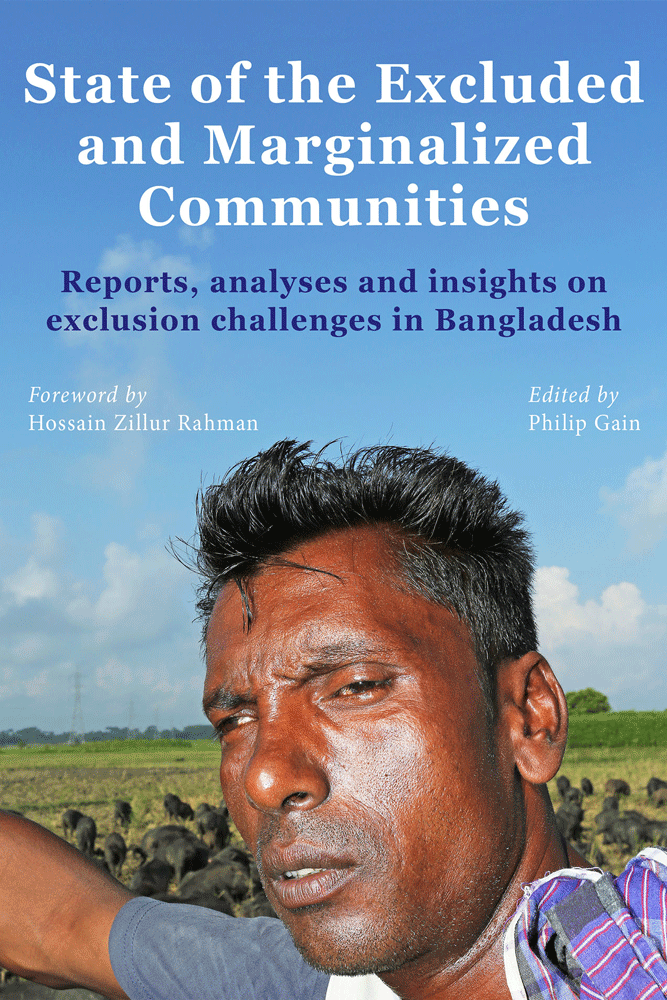Reports, analyses and insights on exclusion challenges in Bangladesh
Edited by Philip Gain
Published by Society for Environment and Human Development (SEHD)
Published 2019, English, PBK, 244 page | Tk.300/US$10
 This is an analytical report on the state of the excluded and marginalized communities of Bangladesh—ethnic communities, tea workers, Bede, Rishi, Harijan, Jaladas, sex workers, Kaiputra (pig rearing community) and Biharis. These communities constitute around three percent of the population of Bangladesh. They face discrimination and exclusion—socially, economically and politically—for various reasons such as their ethnic identity, situations close to slavery, occupation, casteism, culture, geographical location, landlessness and eviction from their land.
This is an analytical report on the state of the excluded and marginalized communities of Bangladesh—ethnic communities, tea workers, Bede, Rishi, Harijan, Jaladas, sex workers, Kaiputra (pig rearing community) and Biharis. These communities constitute around three percent of the population of Bangladesh. They face discrimination and exclusion—socially, economically and politically—for various reasons such as their ethnic identity, situations close to slavery, occupation, casteism, culture, geographical location, landlessness and eviction from their land.
The contributors to this report participated in research and investigation on these communities and have based their write-ups on analyses and findings from the field. The write-ups, therefore, are original, full of anecdotes and present information, analyses, insights and facts about structural abuses that the excluded and marginalized communities have been facing for generations. The last section of the publication compiles reports of a series of workshop, convention, dialogue, photography exhibition and cultural programmes in which the excluded communities had eye-level exchanges with the members of the majority community including civil society organizations, high-level officials of different state agencies, politicians, researchers, top economists of the country, academics and human rights defenders. This report is a tool for work on exclusion challenges in Bangladesh both in the field and at thinking level.
